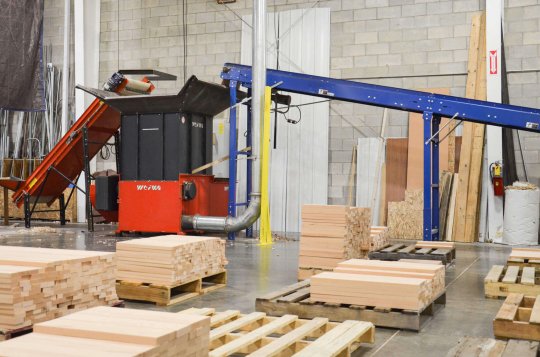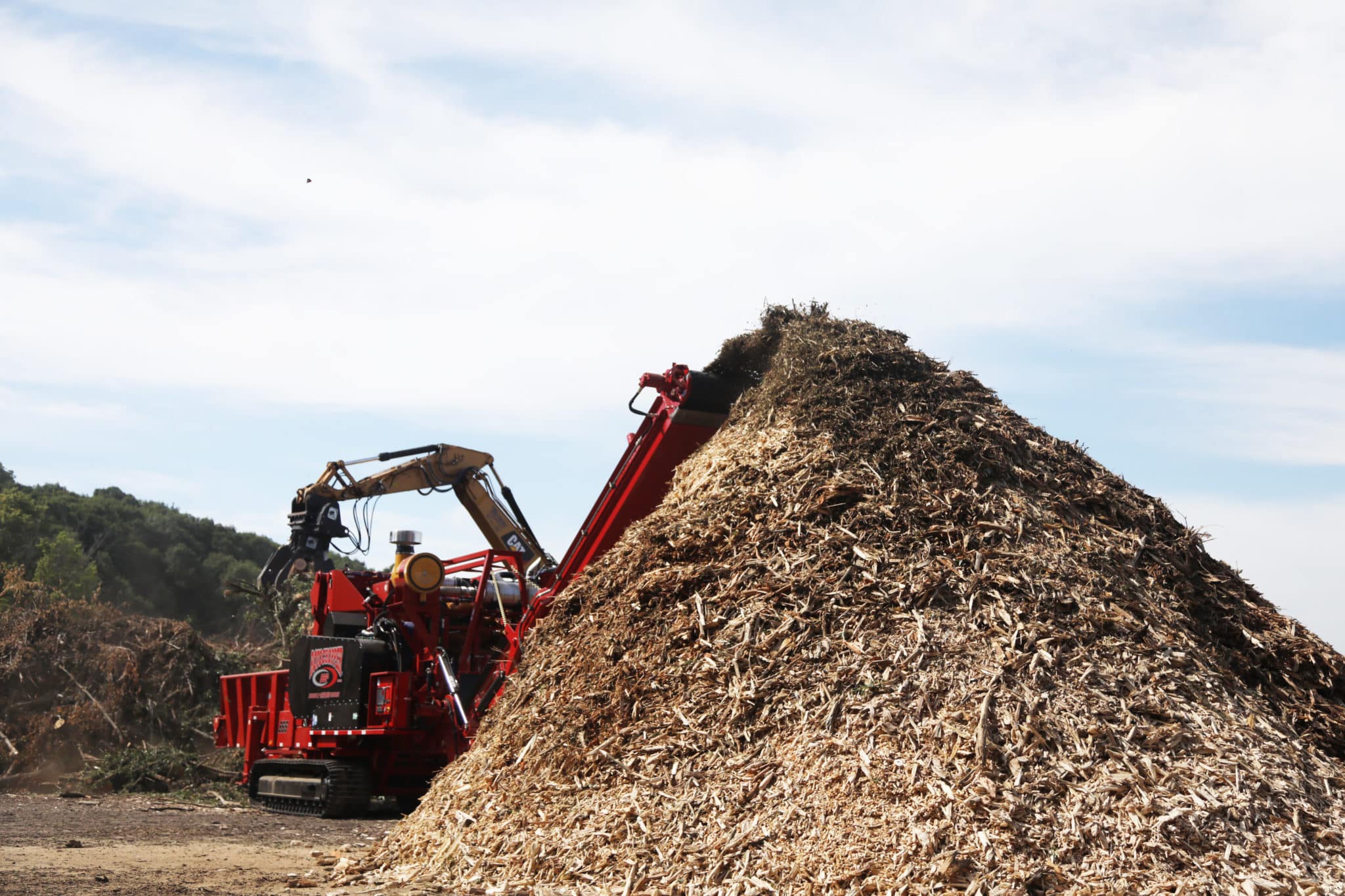Spend Intelligently: Resource the Perfect Wood Grinders for Your Timber Processing Needs
Wiki Article
Open the Prospective of Recycling With Advanced Wood Grinders: Streamline Workflow and Minimize Waste
In today's globe, the demand for reliable waste monitoring and lasting services has come to be increasingly essential. One such remedy that holds excellent promise is the sophisticated wood grinder, a modern technology that has the prospective to open real capabilities of recycling. By enhancing procedures and reducing waste, these grinders use a novel method to tackling the challenges of timber waste processing. Yet just what makes these devices so effective? Exactly how do they boost recycling operations and maximize source utilization? And possibly most significantly, exactly how do they add to minimizing our environmental impact? In this discussion, we will check out the response to these questions and clarified the untapped potential of advanced wood mills in changing the reusing market.Efficient Wood Waste Processing
Reliable wood waste processing is crucial for enhancing recycling operations and making the most of the utilization of this important resource. Wood waste, such as lumber, lumber, and pallets, is a substantial result of different markets, consisting of construction, furnishings production, and demolition. To successfully handle and reuse this waste, progressed wood mills have arised as a key service.
Advanced timber mills are developed to efficiently refine timber waste into multiple-use materials, such as wood chips or compost, which can be used for various objectives. These mills utilize powerful cutting systems and progressed shredding innovations to break down timber waste right into smaller sized, much more manageable items. By reducing the dimension of the waste, the mills promote less complicated transport and storage space.
Along with size reduction, progressed timber grinders likewise play an important function in separating contaminants, such as nails and screws, from the timber waste. This makes certain that the refined product is cost-free and tidy from contaminations, making it ideal for a large range of applications.
Reliable timber waste processing not only assists improve recycling operations however also decreases waste. By processing and reusing timber waste, businesses can lower their reliance on virgin sources, conserve power, and lessen the environmental impact connected with conventional garbage disposal methods.
Sustainability in Waste Monitoring
Promoting sustainable practices and environmental duty, waste management in the context of timber processing includes executing reliable and green approaches. In today's world, where ecological issues go to the leading edge, it is important for industries to take on lasting waste management techniques. With the boosting need for timber products and the succeeding surge in wood waste, it has actually become vital to find ingenious remedies that decrease the effect on the environment.Sustainability in waste administration entails numerous key elements. First of all, it is important to decrease the quantity of waste created in the timber processing market. By executing reliable wood grinding methods, such as using advanced timber mills, the industry can substantially lower the quantity of waste generated. These grinders are capable of processing huge amounts of wood waste into smaller, much more workable pieces, which can then be repurposed or recycled.
Secondly, lasting waste monitoring concentrates on reusing and reusing materials whenever feasible. Timber waste can be transformed right into useful resources such as biomass gas or garden compost. By repurposing wood waste, the sector can minimize its reliance on virgin products and lessen the requirement for landfill room.
Finally, sustainable waste monitoring includes lessening the environmental impact of garbage disposal. Timber waste that can not be reused or recycled ought to be disposed of in an eco responsible fashion. This might include proper sorting and segregation of waste, as well as making use of technologies that transform waste right into power through processes like anaerobic digestion or incineration with power healing.
Enhanced Recycling Operations
To optimize timber waste administration and make best use of reusing initiatives, the implementation of sophisticated timber grinders is crucial for improving reusing operations (wood grinders). These makers offer a series of advantages that can considerably enhance the performance and effectiveness of recycling processesOne of the key advantages of advanced wood grinders is their capability to process a wide range of wood waste products. From dog crates and pallets to tree branches and stumps, these mills can efficiently damage down timber waste right into smaller, much more workable items. This not just helps with less complicated transportation and storage yet additionally allows the recycling of a higher quantity of timber waste.

Moreover, progressed wood grinders are furnished with attributes that enhance safety and minimize downtime. These equipments are designed to operate successfully and reliably, reducing the requirement for repair and maintenance. This allows reusing operations to run smoothly and consistently, ultimately enhancing efficiency and lowering costs.
Making Best Use Of Resource Utilization
With the ability to effectively process a variety of wood waste materials, advanced timber mills play a pivotal role in making the most of resource usage within reusing procedures. These machines are developed to successfully convert timber waste into valuable timber chips or mulch, which can then be utilized in different markets such as landscaping, biomass power manufacturing, and animal bed linen.By making use of advanced wood mills, recycling operations can considerably minimize the amount of wood waste that winds up in land fills, aiding to save useful land fill room and reduce environmental influence. The refined wood waste can be repurposed and used as a renewable energy, adding to a more round and lasting economic climate.
Additionally, advanced wood grinders enable recycling page operations to draw out the maximum value from wood waste products. These makers have the ability to produce consistent and top quality wood chips or compost, which can be marketed as useful products on the market. This not only creates earnings for reusing procedures but additionally produces opportunities for the development of brand-new markets and partnerships.
In addition to optimizing resource use, advanced wood mills additionally add to the general performance of recycling operations. These equipments are created to handle large quantities of timber waste quickly and successfully, reducing processing time and labor expenses. They additionally have safety attributes and progressed innovations that ensure reliable and smooth operation, reducing downtime and optimizing performance.
Lowering Ecological Impact

Among the vital advantages of using sophisticated timber grinders is the production of useful items from wood waste. These mills have the capability to convert wood waste right into wood chips, compost, or biomass gas, which can be utilized in various markets such as energy, landscaping, or building production. By transforming waste into useful items, these mills add to a much more sustainable and circular economic situation.
In addition, progressed timber grinders are furnished with sophisticated innovations that improve their effectiveness and minimize energy usage. They are created to take care of huge quantities of wood waste in a short amount of time, permitting reusing operations to streamline their procedures and raise performance. This not just lowers the ecological effect of recycling operations but also boosts the total efficiency why not try these out of wood waste management.
Verdict
In final thought, advanced wood mills use an encouraging service to unlock the capacity of recycling by minimizing and improving procedures waste. These mills allow reliable timber waste processing, improve recycling procedures, maximize resource application, and reduce the ecological footprint. wood grinders. By adopting these innovations, companies can add to a more sustainable waste administration system, making sure the effective use of sources and reducing ecological impact
Report this wiki page